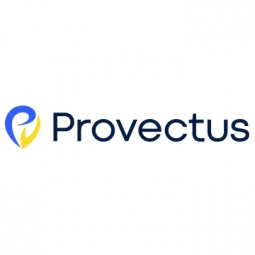Automating Document Processing in HCLS with AI: A Case Study on PSC Biotech
- Analytics & Modeling - Machine Learning
- Analytics & Modeling - Natural Language Processing (NLP)
- Life Sciences
- Pharmaceuticals
- Logistics & Transportation
- Product Research & Development
- Behavior & Emotion Tracking
- Object Detection
- Data Science Services
- Training
PSC Biotech, a global life sciences consultancy, was facing challenges with its document processing operations. The company was looking to enhance its operations by automating its existing pipeline with AI, specifically to process FDA Form 483 observations faster, more accurately, and on a larger scale. The company's existing processes were manual, leading to high processing costs, risks of errors due to human factors, and a throughput rate that depended entirely on the number of employees. The accuracy of document processing was also low and fluctuated significantly over time. Given the sensitive nature of the HCLS business operations, any process that is slow, inefficient, and prone to errors poses a huge risk. PSC Biotech handles thousands of FDA Form 483 observations per year, and the need to automate its document processing pipeline was long overdue. The company expected to decrease time spent on manual review of observations, decrease costs of form processing, mitigate risks of infractions made by mappers and reviewers, increase throughput rate, and increase the accuracy of document processing by adopting AI and implementing an ML-powered Intelligent Document Processing (IDP) solution.
PSC Biotech is a global life sciences consultancy that provides companies in the HCLS sector with essential services, ensuring that their healthcare products are developed, manufactured, and distributed to meet the highest standards, in compliance with all applicable regulatory requirements. Founded in 1996, PSC Biotech has served as a strategic partner to emerging and established life science companies in 52 countries. The company has helped over a thousand clients worldwide to stay up to date on current regulations and technologies in the HCLS sector. PSC Biotech handles thousands of FDA Form 483 observations per year, which are notices sent by the FDA to highlight any potential regulatory violations found during a routine inspection.
Provectus, an AI consultancy, was chosen by PSC Biotech to design and build an automated observation classification solution. The solution was built using industry best practices, including setting up development and management environments, conducting EDA and text classification experiments, using labeled datasets for a baseline model, and implementing secure and reproducible ML infrastructure and CI/CD pipelines. The IDP solution for observation classification was delivered using AWS data lakes and AI/ML services, pre-trained deep learning and NLP algorithms, and frameworks such as PyTorch, Tensorflow, and NLTK. The solution was delivered in three phases. In the first phase, the team explored and prepared the data, set up all required environments, established a baseline for text classification, and developed the observation classification model. In the second phase, the team developed the ML API service and enhanced the ML release cycle. In the third phase, the team developed a user-friendly UI for document processing, delivered a service for smooth integration of the machine learning component into the existing document processing pipeline, and developed a CI/CD pipeline that could retrain the existing model and push it into production when it achieved higher precision and recall.
Related Case Studies.











